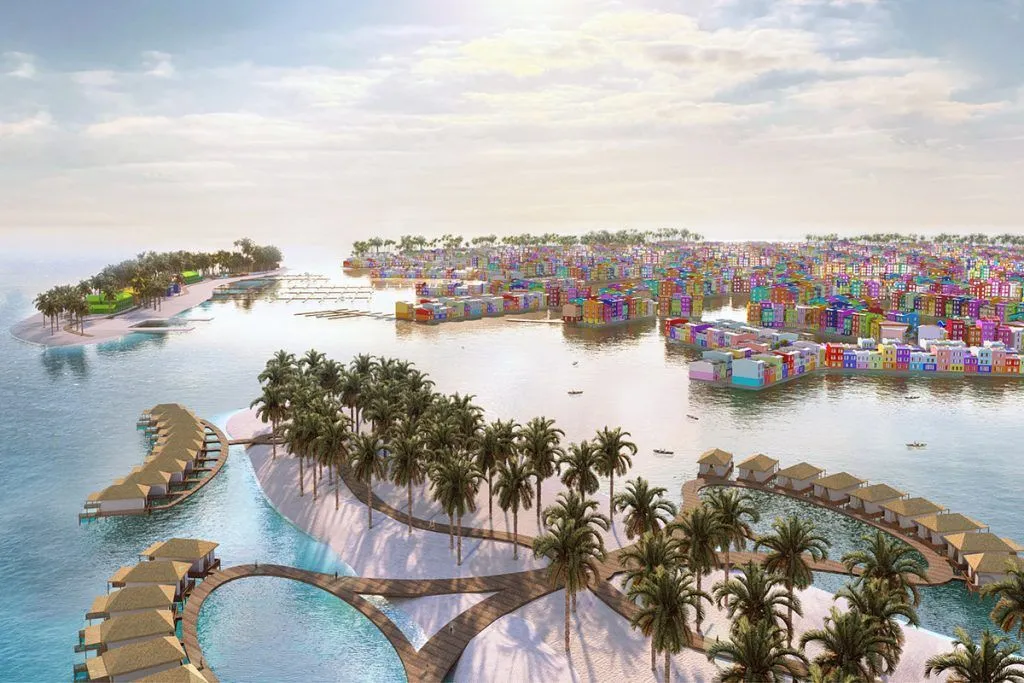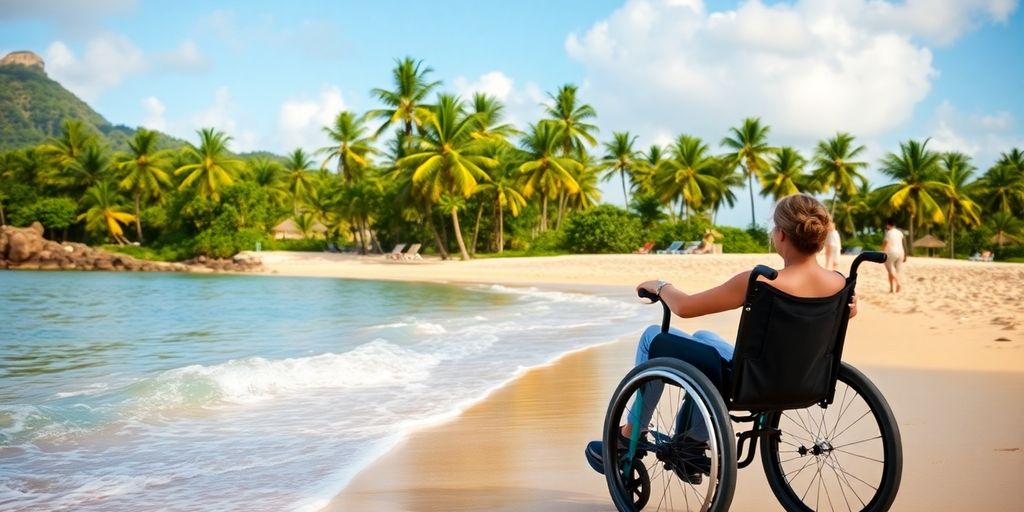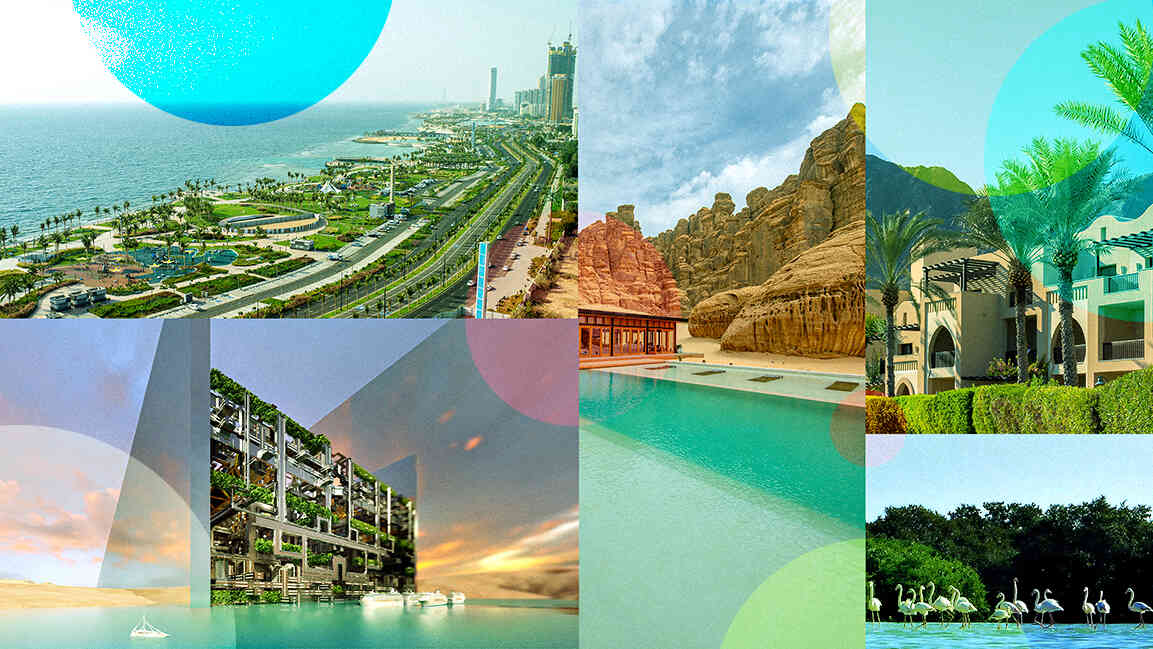Gulf cities are quickly becoming some of the most welcoming places in the world for tourists with disabilities. In recent years, cities like Dubai, Abu Dhabi, Doha, and Riyadh have been working hard to improve accessibility. From better transportation options to wheelchair-friendly hotels and attractions, these destinations are showing that everyone deserves to explore and enjoy travel.
This move toward more inclusive tourism is not just a trend. It’s a reflection of a larger vision to make the Gulf region open to all. Governments are working with businesses to create better services for people with disabilities, the elderly, and families with young children. These efforts are making a real difference.
Transport Is Getting Smarter and More Accessible
One of the biggest challenges for tourists with disabilities is transportation. But Gulf cities are taking big steps to fix that. In Dubai, the metro system is designed with elevators, ramps, and spaces for wheelchairs. Clear audio and visual announcements help passengers with hearing or vision impairments.
Abu Dhabi is also improving its buses and taxis. Most city buses now have low floors and ramps, making it easier for people in wheelchairs to get on and off. Accessible taxis are also more available, especially at airports and hotels.
In Riyadh, the new metro system includes features like tactile paving, visual signage, and dedicated seating. Qatar has also worked on making its public transport more user-friendly. The Doha Metro has elevators at every station and trains that are easy to board.
These upgrades are helping all kinds of travelers—not just those with disabilities. Elderly tourists, parents with strollers, and people with temporary injuries all benefit from easier transportation.
Hotels and Resorts Are Becoming More Inclusive

Tourists often spend a lot of time in their hotel, so accessibility there is important too. In Dubai, many hotels now have rooms designed for wheelchair users. These rooms have wide doors, grab bars in the bathroom, and roll-in showers. Elevators and public spaces like restaurants and pools are also being improved.
Abu Dhabi is following the same path. Luxury resorts and budget hotels alike are updating their facilities. Hotel staff are also being trained to assist guests with special needs in a respectful and professional way.
In Saudi Arabia, the growing tourism sector is paying attention to accessibility too. Major hotel chains in Riyadh, Jeddah, and AlUla now offer accessible rooms and services. Qatar’s hospitality sector has also made strong efforts, especially ahead of hosting international events like the FIFA World Cup in 2022.
The goal is to make every visitor feel comfortable, welcome, and safe.
Tourist Attractions Are Opening Doors to Everyone
The Gulf is full of exciting tourist attractions—desert safaris, museums, beaches, malls, and historic sites. And now, more of these places are opening their doors to everyone.
For example, the Louvre Abu Dhabi is fully accessible. It has ramps, elevators, and wheelchairs available for visitors. The Dubai Mall and Burj Khalifa also offer similar facilities. Signs are easy to read, and many places offer apps or audio guides that help those with visual or hearing impairments.
In Qatar, the National Museum and Katara Cultural Village have made accessibility a top priority. AlUla in Saudi Arabia is working on making its historical and natural sites easier to explore without damaging the environment.
These changes are helping people with disabilities enjoy the same travel experiences as everyone else.
Events and Festivals Are Becoming More Inclusive
Gulf cities host many events—fashion shows, music festivals, sports competitions, and more. These events attract thousands of international tourists. To make them more inclusive, organizers are thinking ahead.
For instance, Expo 2020 Dubai had many services for people with disabilities, like wheelchair rentals, accessible transport, and sensory-friendly spaces for people with autism. The FIFA World Cup 2022 in Qatar also introduced services like guided assistance and accessible stadium seating.
Saudi Arabia’s Riyadh Season and Jeddah Season are now adding ramps, special viewing areas, and accessible restrooms at event sites. This ensures that everyone can take part in the fun, regardless of physical ability.

Staff Training Is Making a Big Difference
Technology and infrastructure are important, but people are just as crucial. Many Gulf cities are now training hotel staff, tour guides, airport employees, and transport workers to better assist travelers with special needs.
This training helps workers understand how to communicate clearly and respectfully. It also shows them how to offer help in ways that are useful but not patronizing. For example, some staff learn basic sign language or how to use apps that help translate speech into text.
This human touch is what really creates a welcoming environment for travelers.
Tech and Apps Are Supporting Accessibility
Smartphones and apps are also playing a big role in improving travel accessibility. Dubai has apps that tell you which metro stations are wheelchair-friendly or where to find accessible hotels. Abu Dhabi and Doha have similar tools that help visitors navigate the city more easily.
Some attractions offer virtual tours, so people can plan their visit before they arrive. Others provide audio guides or digital maps for those with vision impairments. This use of technology is helping to remove barriers and make travel easier for all.
The Road Ahead: More to Be Done
While a lot of progress has been made, there’s still more to do. Some smaller hotels and older buildings still lack ramps or elevators. In some places, public awareness about accessibility needs to improve.
But the overall direction is clear. Gulf cities are working hard to make sure all tourists feel welcome. This is not just good for tourism—it’s the right thing to do.
As these cities prepare to host even more global events and welcome millions of visitors, they’re setting a new standard for inclusive travel in the region.
Also read: Why Everyone’s Booking Adventure Trips to Saudi Arabia Right Now



